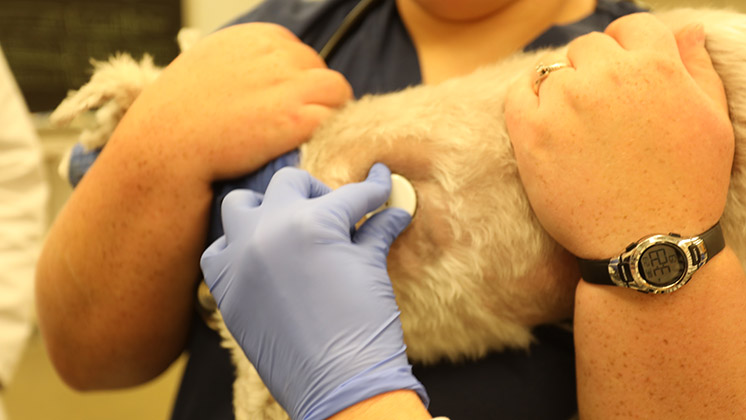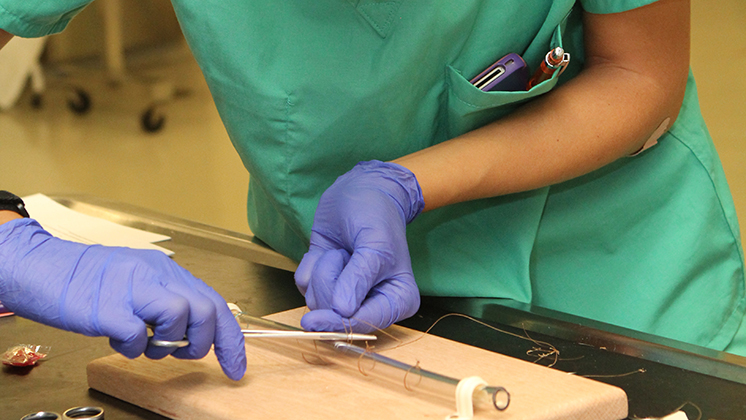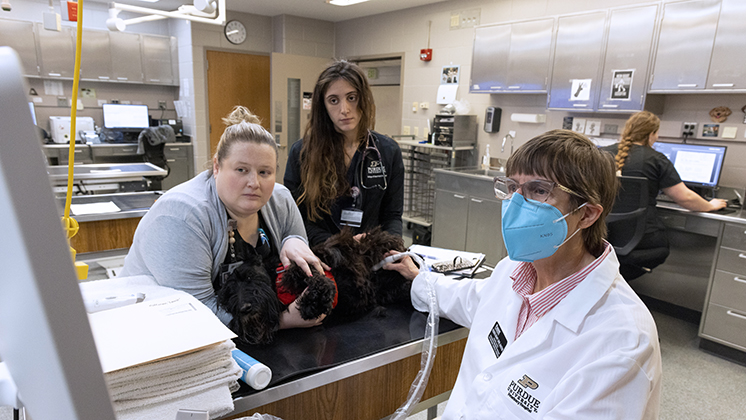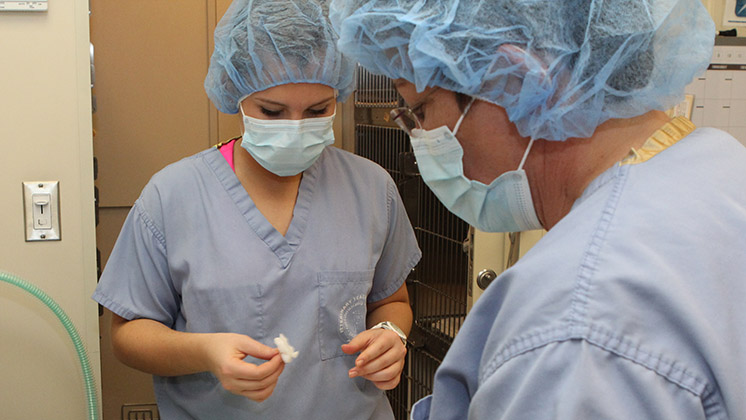
by Kelsey Wirt, MS, LVT and Josh L. Clark, MS, RVT
If you're considering a career as a veterinary technician, or vet tech, you're likely wondering about the necessary steps and qualifications. To become a vet tech, you typically need to complete several key stages of education and credentialing.
Your journey to becoming a vet tech can start as early as you want. You can start to gain experience by volunteering at animal shelters or observing at veterinary clinics. When available, try to take STEM related courses to build a solid foundation for your future studies. There are also other opportunities open to the community where a variety of ages can gain experience specific to veterinary medicine. One example is the Boiler Vet Camp offered through the Veterinary College at Purdue University.
After high school, the next step is to earn a post-secondary degree in veterinary technology/nursing. It's important to attend vet tech programs that are accredited by the American Veterinary Medical Association (AVMA). The minimum educational requirement to become a credentialed vet tech/nurse is an associate’s degree. There are also options to earn a bachelor's degree in veterinary technology.
Decide how to choose the right vet tech program for you.
Upon completion of an AVMA-accredited program, most states require graduates to become certified, licensed, or registered. Although requirements vary by state, this process generally involves passing the Veterinary Technician National Examination (VTNE), a standardized exam administered by the American Association of Veterinary State Boards. Also, states may have their own requirements for becoming credentialed along with passing the VTNE, which can include passing a state exam and a background check.
Even after becoming a credentialed vet tech/nurse, continuing education is often required to maintain your certification, licensure, or registration. This ensures that you stay up-to-date with the latest developments in veterinary medicine. Each state has their own amount of continuing education hours required to maintain your credentials, so it is important that you are familiar with your own state’s practice act.
Beyond formal education and credentialing, successful vet techs often possess certain skills and qualities. These include strong communication and interpersonal skills, as you'll be working closely with veterinarians, pet owners, and fellow coworkers. Compassion and patience are crucial when dealing with animals and their owners, especially in stressful situations. Physical stamina is also important, as the job often involves standing for long periods and handling animals.
Read more about how working with people is just as important as working with animals.
Becoming a vet tech involves a combination of academic preparation, credentialing, and the development of key skills and qualities. Through AVMA accredited programs and practical experience, you can prepare for a rewarding career in this dynamic and growing field.
Find your calling as a Purdue Veterinary Nurse!
Not quite ready to apply? Connect with us to learn more.

Becoming a veterinary technician requires several steps, each of which takes a certain amount of time. Let's explore the journey and timeline for aspiring vet techs.
Read more
Discover the significance of AVMA accreditation when choosing a veterinary technology program. Understand the standards, benefits, and what it means for your future career. See why Purdue's AVMA-accredited programs stand out.
Read more
Learn whether a vet tech degree can serve as valuable experience for aspiring veterinarians.
Read more